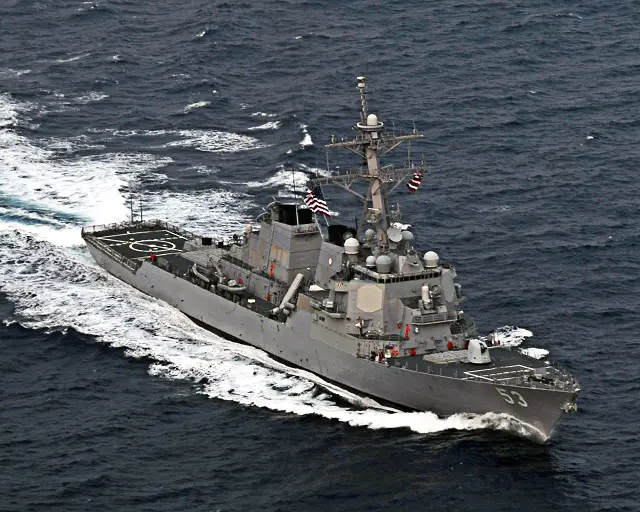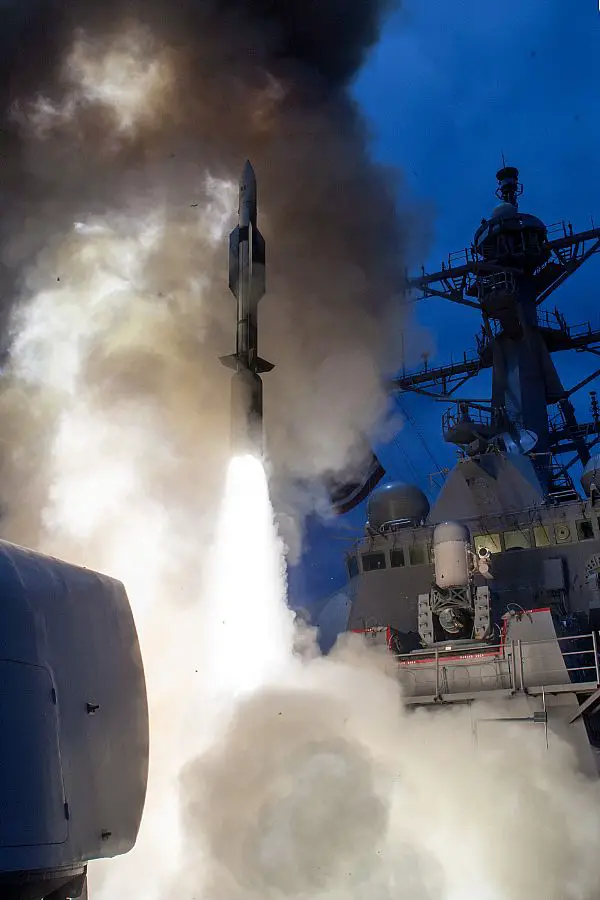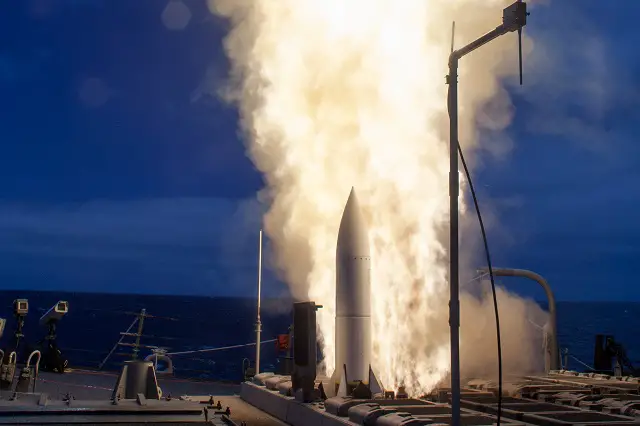Breaking news
Live Missile Firings Test New Aegis System on board Burke class Destroyer USS John Paul Jones.
| 2014
 USS John Paul Jones (DDG 53) (Picture: US Navy) |
|||
These CSSQT
successes are attributed to the hard work and dedication of each and every
member of the John Paul Jones crew. The long road to these missile firings
started in the BAE ship repair facility in San Diego during 2012 when
the ship started combat systems modernization as part of the destroyer
modernization program. Over the course of a year, John Paul Jones received the latest commercial off-the-shelf computing infrastructure, SPY-1D transmitter upgrades, and a multi-mission signal processor which comprises the Aegis Baseline 9C suite. Since then, the crew has worked diligently to ensure that the systems are not only operational, but that they will operate effectively for future ships. "It is my honor to serve on such a fine warship and be able to sail with the men and women who tested and demonstrated this amazing capability," said Cmdr. Andrew Thomson, the ship's commanding officer. "From the concept development phase, through design, build, installation, and test many hard working Americans came together to field this capability. I consider myself lucky to be part of that amazing team." Thomson said that with these tests, the crew of John Paul Jones has proven that they are ready to assume the role as the Navy's Integrated Air and Missile Defense test ship following a change of homeport to Pearl Harbor later this summer. According to Thomson, CSSQT is just the beginning. In the coming years, John Paul Jones is expected to test newer and more advanced systems that will be used to defend the nation and U.S. and allied forces overseas. |
|||
 PACIFIC OCEAN (June 19, 2014) The Arleigh-Burke class guided-missile destroyer USS John Paul Jones (DDG 53) launches a Standard Missile-6 (SM-6) during a live-fire test of the ship's aegis weapons system. Over the course of three days, the crew of John Paul Jones successfully engaged six targets, firing a total of five missiles that included four SM-6 models and one Standard Missile-2 (SM-2) model. (U.S. Navy photo/Released) |
|||



























